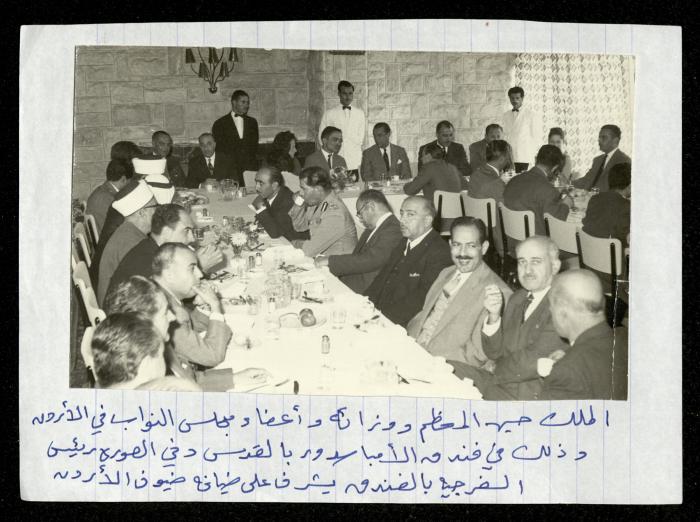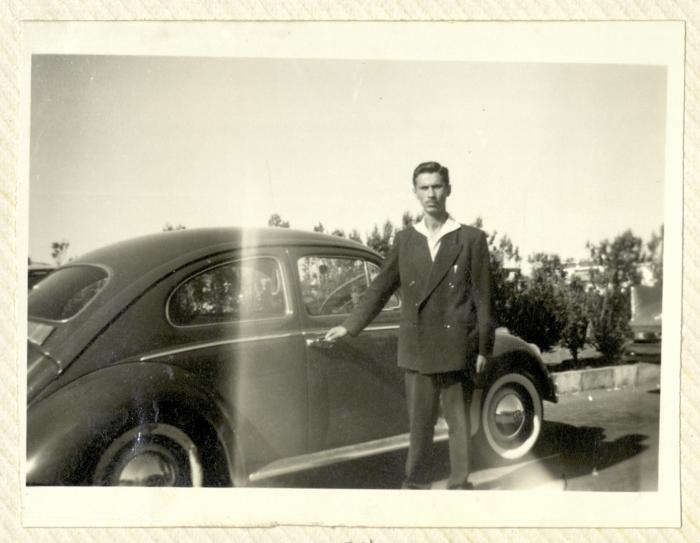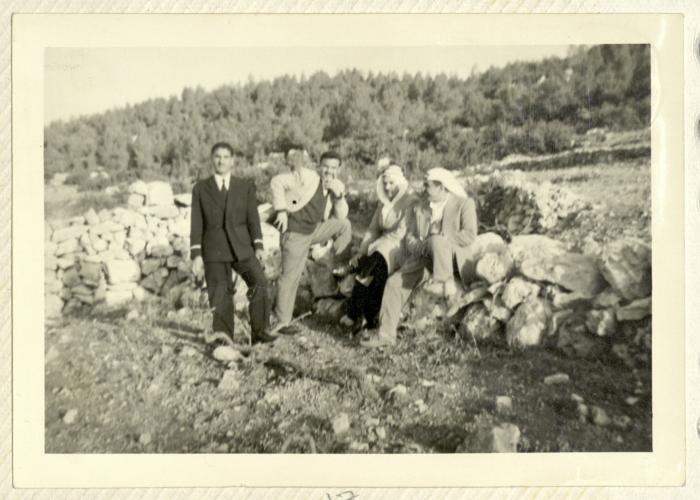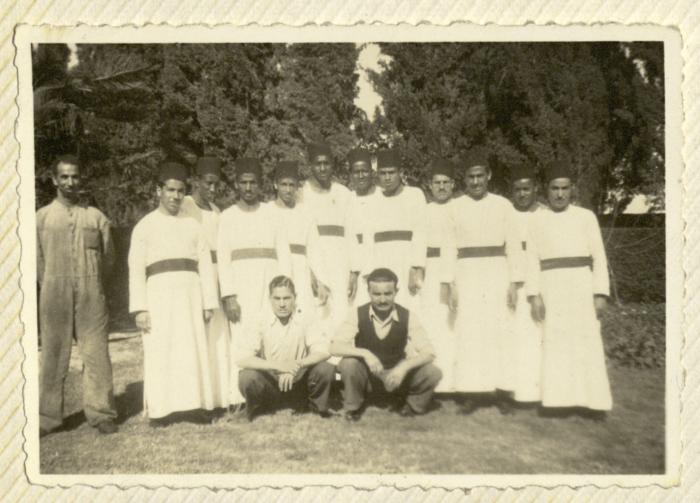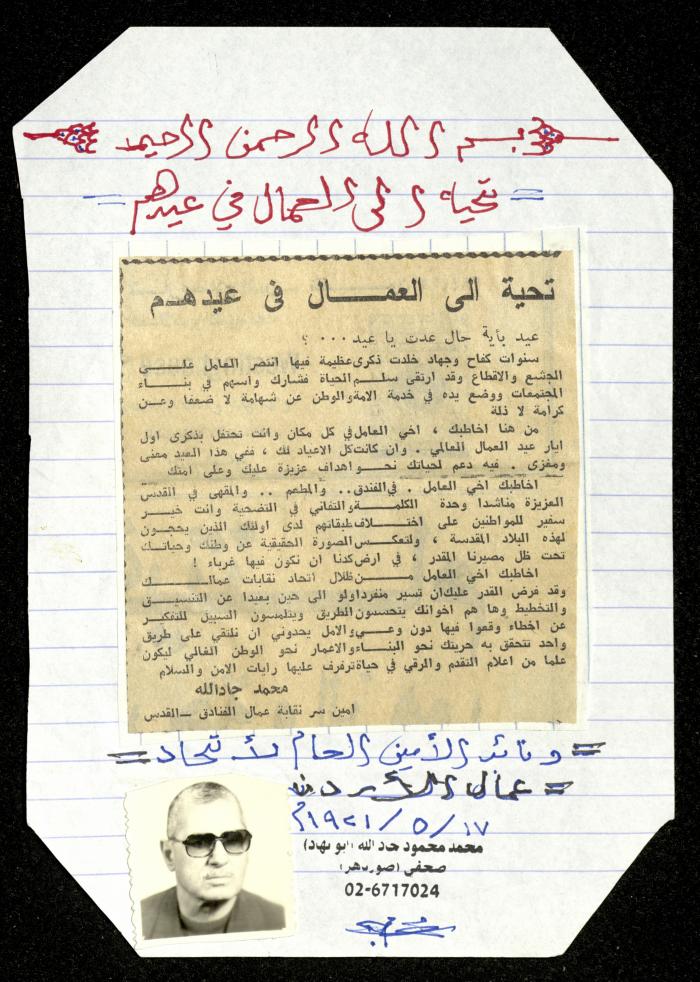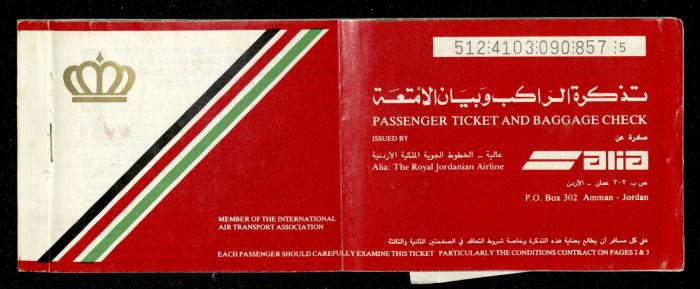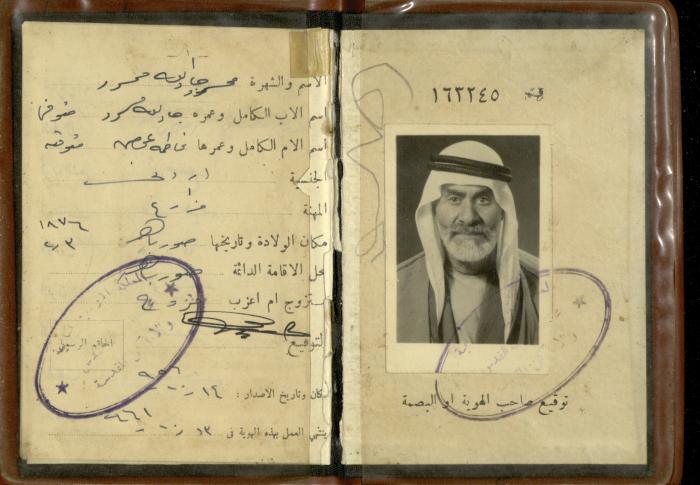The Muhammad Jadallah Collection
Explore the collectionPERIOD
1938 - 2020
ITEMS
Muhammad Jadallah "Abu Nihad" is a Jerusalemite freedom fighter who was born on 17 May 1921 in the village of Sur Baher and attended several schools until he finished high school. Afterwards, he began his work as a waiter in several places, the last of which was before the 1948 Arab-Israeli War at the King David Hotel in Jerusalem. When he reached the age of twenty-six, the Higher Arab Committee in Palestine, in cooperation with the Palestinian Arab Party in Jerusalem, selected him and others from several regions to send them for military training in Syria, in coordination with the League of Arab States. In the summer of 1947, Jadallah arrived at the Qatanna camp in the Syrian territories, received his military uniform and completed registration and discipline procedures according to the Liberation Army's requirements. The warrior returned to Jerusalem and trained the people of his village in shooting and using weapons. After that, he joined the Fourth Company of the "Third Regiment", with the rank of first lieutenant.
show more show lessThe Muhammad Jadallah Collection has a variety of documents, as it included a special aspect of the labour movement when he was a hotel worker in Jerusalem, and another of his life as a freedom fighter and joining the ranks of the revolution. The collection contains several resignation requests, work proof certificates, dinner invitations in honour of princes and kings, and correspondence with the Hotel, Restaurant and Café Workers Union. This type of documents covers the period of Jadallah's work that extended between the 1930s and 1960s in several hotels, including the al-Zahra, King David, and San Julian Hotels. He became a freedom fighter after working as a waiter in the British army camps, joined the training camps in Syria, returned to train the people of his village, and participated in several battles such as Qastal, Jabal Mukaber, and the battle of Ramit Rachel settlement, as this was evident in his diaries, correspondences, and photographs.
show more show less
